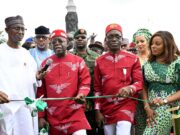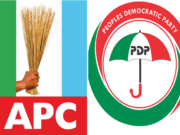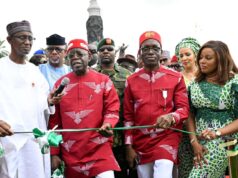The National Assembly has extended its recess, pushing the resumption of plenary sessions from April 29 to May 6, 2025.
The delay comes amid increasing concerns over insecurity across several parts of Nigeria.
In a statement released yesterday by the Clerk to the National Assembly, Kamoru Ogunlana, the extension was attributed to the need for lawmakers to observe the upcoming Workers’ Day activities in their respective constituencies.
“I am directed to inform distinguished senators, honourable members and the general public that the two Houses of the National Assembly have extended the date for the resumption of plenary sessions from Tuesday, April 29, 2025, to Tuesday, May 6, 2025,” Ogunlana announced.
While the reason given is ceremonial, the extension coincides with intensifying security challenges affecting various states, including Benue, Borno, and Plateau, prompting concerns about the government’s priorities.
Reacting to the development, the Nigerian Political Science Association (NPSA) issued a strong statement urging Nigeria’s political class to shift their attention from the 2027 general elections to addressing the rising tide of insecurity threatening the country’s stability.
NPSA President, Prof. Hassan Saliu, speaking on behalf of the association in a statement titled ‘The Alarming State of Insecurity in Nigeria’, lamented the deteriorating safety conditions and growing fear among citizens.
According to Saliu, “Nigerians living in Benue, Borno, Plateau and other states in recent weeks were living in fear.”
He further noted, “Before now, the general feeling, especially among government officials, was that the country was on the path to subduing insecurity,” but expressed regret that “things were getting worse.”
Prof. Saliu attributed the rising insecurity to various complex factors such as poverty, religious extremism, lack of governance in some areas, and inter-group tensions.
However, he identified the primary driver as the prevailing exclusionary political system.
He stated, “The main cause of insecurity was the exclusionary politics that ignored the masses.”
Saliu criticized the political elite for focusing on the 2027 elections while failing to address the immediate danger posed by insecurity.
“Rather than concentrate energy and attention on tackling the increasing wave of insecurity, the political class is fixated on the politics of 2027,” he observed.
Emphasizing the broader consequences of inaction, he warned that the persistent insecurity could deter foreign investment.
“No foreign investor would put their money where insecurity is becoming a way of life,” Saliu said.

















